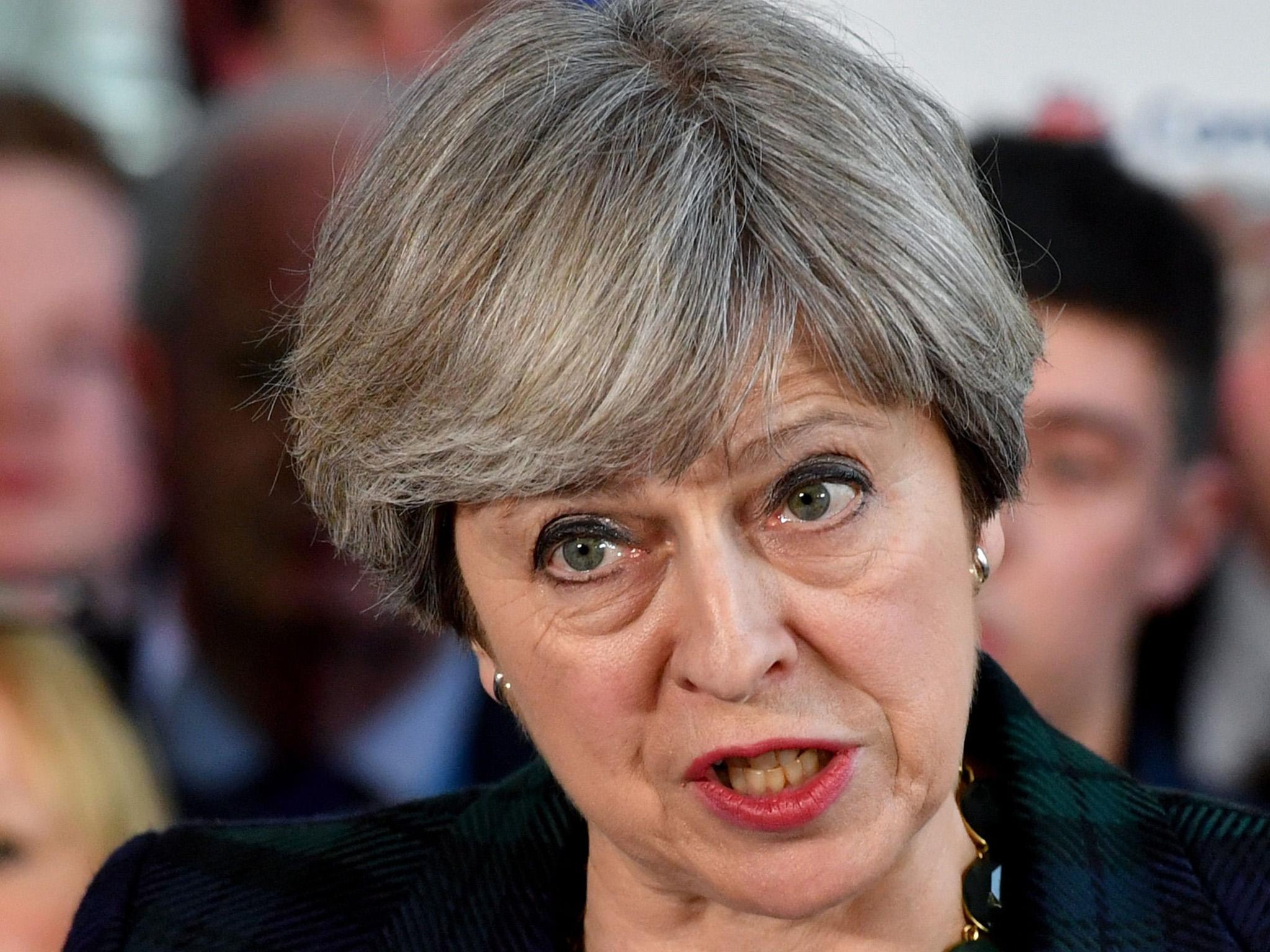This is why Theresa May and Marine Le Pen are more similar than you think
Both rely on the language of threat to win over their voters. May's promise to tackle 'unsustainable levels' of immigration and 'take back control of our borders' sounds a lot like something her French counterpart might say

Five days ago, France voted far-right candidate Marine Le Pen through to the final round of voting for the French presidency.
Most of us in the UK recognise Marine Le Pen for the racist, nationalist demagogue she is. However what we are failing to see is the stark resemblance between her divisive campaign tactics and those of our own Prime Minister Theresa May.
Both May and Le Pen’s election campaigns are couched in the language of threat, creating a sense of fear and panic. Le Pen’s campaign hinges on halting “uncontrollable immigration”; Theresa May talks about “unsustainable levels” of immigration and the need to “take back control of our borders”.

Importantly, this rhetoric implies that the current immigration situation is out of control, causing people to believe there is imminent danger to their way of life. In her victory speech on Sunday, Le Pen pledged to end “mass immigration and the free circulation of terrorists”.
May and Le Pen present themselves as the great defenders, using language and slogans appropriate to wartime. Le Pen’s manifesto pledges to put the “defence of the nation at the heart of political decisions”; and May’s new campaign slogan is: “strong, stable leadership in the national interest”. In using such language they present themselves as protectors against the threat of immigration, and importantly they also validate false narratives of xenophobia.
Both campaigns are seeped in nationalistic fever: May directly cites national interest in her slogan, and Le Pen’s second round slogan is simply: “Choose France”. What is cleverly unspoken, yet deliberately implied, is that this is white-national interest. In France, French people who are not white are viewed as the children of immigrants and not as French citizens. The politics and language of exclusion and othering has been fine-tuned by Le Pen’s Front National along with anti-Semitism and Islamophobia.
May and Le Pen manufacture a patriotic national identity that hinges on being a white national and makes the entry of non-whites the threat.
They directly fuel an “us and them” dichotomy.
There appears to be a formula to securing power: conflate black and brown citizens and refugees with terrorism in the public discourse, and then profess to be the only powerful leader who can and will save the country from this threat within.
The genius of these slogans is that it isn’t necessary to explicitly refer to whiteness; the current climate of fear, xenophobia and open racism is enough for people to make that leap themselves, and see in the slogan what they already believe.
More than ever this racism has been mainstreamed, as can be seen in the click bait headlines circulating discussing Le Pen’s feminist credentials, questioning if she will smash France’s glass ceiling or if she really is far right. This is how modern day facism in France is being packaged, diluted and made more palatable – by marketing Le Pen as a feminist; Front National’s vote has increased amongst women in France. Her so called “feminist” credentials are used to make her fascist lite and more “Presidential”.
Who is left to face the consequences of this racially charged language? Black and ethnic minority communities, or anyone who is not included in this white-national identity.
When people feel that their way of life is at stake, that fear is directed at those who are perceived to be a threat in the form of hostility and ultimately violence. Politicians like May and Le Pen, and the Brexit Leave campaign before them, have stoked fear and characterized immigrants as the threat. Xenophobic abuse and hate crime are not the work of a “thuggish minority” – they are a direct result of this rhetoric.
In the same way that Brexit emboldened racist hate by normalising xenophobia, Theresa May’s projected landslide victory will be a public and widespread validation of false narratives – a narrative of threat from anyone that’s other.
Since Brexit there has already been a marked increase in reported hate crime – that’s clear from the numbers. Our friends at NGOs are “overwhelmed” with cases of racist hate, and we ourselves have both been victims of abuse since Brexit.
In just the week following the referendum 33 times as many people were affected by hate crime as by terrorism in the whole year. We make this comparison deliberately, because counter-terror initiatives are a priority on the UK policy agenda, yet British people are far more likely to be victims of hate crime - this must be acknowledged and tackled by policy makers too.
As we watch May’s campaign unfold we should be aware of the consequences of her tactics, and speak out against the dangers of this divisive and dehumanising rhetoric.
Karissa Singh is founder of Post Ref Racism @PostRefRacism @KarissaSingh
Shaista Aziz is founder of The Everyday Bigotry Project @ShaistaAziz
Post Ref Racism and The Everyday Bigotry Project will be campaigning to put hate crime on the agenda in the run up to the election
Join our commenting forum
Join thought-provoking conversations, follow other Independent readers and see their replies
Comments
Bookmark popover
Removed from bookmarks